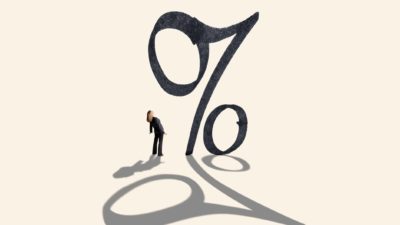The ASX share market has seen a lot of pain this year. As of this morning, the S&P/ASX 200 Index (ASX: XJO) has dropped 15% in the year to date.
Looking at some individual shares, the Xero Limited (ASX: XRO) share price has dropped 51%, the Wesfarmers Ltd (ASX: WES) share price has fallen 29% and the Goodman Group (ASX: GMG) share price has declined 41%. Those are some big declines for some of the ASX's biggest businesses. This doesn't happen often.
Today could be a solid day for the ASX share market after a strong performance by the US share market overnight. But, that will only erase a small portion of the decline we've seen this year.
Is this a good time to invest?
I think heavy market declines like we've seen this year are generally a great time to invest. That doesn't mean I think every single share is going to do well from here. But, prices are now a lot lower and I believe that a big part of successful investing is buying at a good price.
Choosing the right investment is obviously another key factor.
For much of the COVID-19 pandemic, the share market was going through a very strong bull run. It was finally halted as inflation and interest rates shot higher.
I'd rather buy ASX shares when investors are cautious and things look uncertain. When things look rosy, share prices tend to go pretty high, as we saw in 2021. I'd prefer not to buy at a high price.
There's a great Warren Buffett analogy about burgers when it comes to investing. In 2001, Buffett said:
To refer to a personal taste of mine, I'm going to buy hamburgers the rest of my life. When hamburgers go down in price, we sing the 'Hallelujah Chorus' in the Buffett household. When hamburgers go up in price, we weep. For most people, it's the same with everything in life they will be buying — except stocks. When stocks go down and you can get more for your money, people don't like them anymore.
Where are the opportunities?
For starters, the three ASX shares that I named at the beginning of this article look like attractive options to me.
There are a number of high-quality ASX shares that have been sold off that still have strong positions in their industry, such as REA Group Limited (ASX: REA), Sonic Healthcare Limited (ASX: SHL), Metcash Limited (ASX: MTS) and Temple & Webster Group Ltd (ASX: TPW).
I also believe there are several retailers that have been sold off which look interesting with a long-term view, including Premier Investments Limited (ASX: PMV), Nick Scali Limited (ASX: NCK), Adairs Ltd (ASX: ADH), Universal Store Holdings Ltd (ASX: UNI), City Chic Collective Ltd (ASX: CCX) and Baby Bunting Group Ltd (ASX: BBN).
JPMorgan's Mary Callahan Erdoes thinks opportunities (to outperform) are everywhere, according to reporting by CNBC. She said:
There is alpha everywhere. It's in stocks. It's in bonds. It's in currencies. It's in real estate. It's in private markets. It's in public markets. It's everywhere, because we are in such a state of change.
There were two areas that she picked out as opportunities: the UK banks and China. Erdoes said:
Don't fight investing in China. It's a country that is going to emerge from Covid. It's a country that is going to put its 22% youth employment back to work. It's an economy that is going to continue to invest in EVs, semis, et cetera.
Last week people said don't invest in a single thing in the UK. That is exactly when people like us, and people in the room, think, 'Let's go look right there'.
She also said that UK banks might be "the most interesting thing" that an investor could look at.
What are the options?
How can we access those ideas when they aren't listed on the ASX? Well, there is a UK bank that's listed as an ASX share — Virgin Money UK (ASX: VUK) — it's down 37% in 2022.
To access the UK share market, investors could use an exchange-traded fund (ETF) like the Betashares Ftse 100 ETF (ASX: F100), given it features 100 of the biggest businesses listed in London.
In terms of Chinese shares, Betashares Asia Technology Tigers ETF (ASX: ASIA) is an option — it owns 50 of the biggest tech companies in Asia outside of Japan. Around 55% of the portfolio is allocated to mainland China shares.









